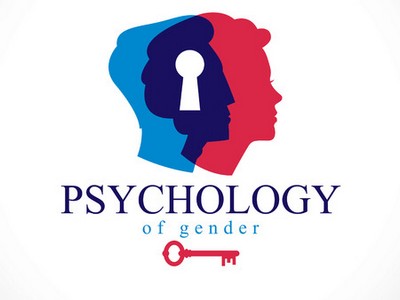
Online Help For Depression Psychologist Surfers Paradise (07) 5539 9798
Depression Psychologist Surfers Paradise

Introduction: Different Types Of Depression Psychologist Surfers Paradise
Anxiety and depression are two of the most typical mental health conditions that individuals face today. While they may look like separate conditions, they are often interconnected and can have a substantial influence on a person's total wellness. In this Anxiety Helpline Psychologist Surfers Paradise Near Me short article, we will check out the connection between stress and anxiety and anxiety, the signs related to each condition, and what actions individuals can take to manage and get rid of these challenges.
Understanding Anxiety and Depression
What is Anxiety?
Anxiety is a natural reaction to stress or danger. It is defined by feelings of worry, concern, and fear about daily scenarios. While it is typical to experience anxiety from time to time, chronic stress and anxiety can disrupt day-to-day activities and effect one's quality of life.
What is Depression?
Depression, on the other hand, is What Are Symptoms Of Depression Psychologist Surfers Paradise Near Me a state of mind disorder that impacts how you feel, think, and deal with daily activities. It surpasses typical feelings of sadness or sorrow and can continue for weeks, months, or perhaps years. Anxiety can make it tough to function in various locations of life, including work, relationships, and self-care.
The Connection Between Stress And Anxiety and Depression
Anxiety and anxiety often work together. Numerous people who experience anxiety likewise struggle with symptoms of depression, and vice versa. The link in between the two conditions can be credited to several factors:
Chemical Imbalance: Both stress and anxiety and depression are thought to involve an imbalance of neurotransmitters in the brain, such as serotonin and dopamine.
Shared Hereditary Factors: Research recommends that there might be a hereditary predisposition for developing both anxiety and depression.
Stressful Life Occasions: Terrible experiences or significant life events can activate both stress and anxiety and anxiety symptoms.
Negative Thinking Patterns: Individuals with anxiety tend to have unfavorable thoughts and stress excessively about future events. These thought patterns can contribute to the advancement of depression.
Physical Signs: Anxiety and depression can manifest with comparable physical signs, such as fatigue, sleep disturbances, and changes in appetite.
Symptoms of Anxiety
Anxiety can manifest in various ways and might present different symptoms in each person. Some common signs of anxiety include:
Excessive Worry: Persistent and extreme fretting about everyday circumstances, even when there is no apparent reason for concern.
Restlessness: Feeling on edge or unable to unwind, often accompanied by physical manifestations like shivering or fidgeting.
Difficulty Focusing: Trouble focusing or remaining present due to racing thoughts or preoccupation with worry.
Irritability: Feeling easily upset or agitated, often without a clear cause.
Sleep Disruptions: Insomnia or uneasy sleep due to racing ideas or worries.
Physical Symptoms: Stress and anxiety can likewise manifest physically, leading to symptoms such as fast heart beat, shortness of breath, dizziness, or gastrointestinal issues.
Symptoms of Depression
Depression can differ in severity and presentation from individual to person. Some common symptoms of anxiety consist of:
Persistent Unhappiness: Feeling unfortunate, empty, or hopeless for a prolonged period, often accompanied by tearfulness.
Loss of Interest: Disliking activities when taken pleasure in and experiencing an absence of motivation.
Changes in Appetite: Significant weight-loss or gain due to changes in hunger or eating habits.
Fatigue: Feeling exhausted and lacking energy, even after getting adequate sleep.
Difficulty Concentrating: Difficulty focusing, making choices, or keeping in mind details.
Suicidal Thoughts: In extreme cases, anxiety can cause thoughts of self-harm or suicide. It is important to look for aid if you experience these thoughts.
How to Handle Anxiety and Depression
Managing anxiety and anxiety needs a thorough technique that resolves both the physical and emotional aspects of these conditions. Here are some methods that can help:
Seek Expert Help: Seek advice from a psychological health professional, such as a depression psychologist in Surfers Paradise, who can supply an accurate diagnosis and establish an individualized treatment plan.
Medication: In many cases, medication might be recommended to help manage symptoms of anxiety and anxiety. A competent healthcare provider can determine if medication is necessary.
Therapy: Cognitive-behavioral therapy (CBT) and other evidence-based treatments can assist people recognize negative thought patterns, develop coping mechanisms, and enhance overall well-being.
Self-Care: Engage in activities that promote self-care, such as routine workout, practicing relaxation methods (e.g., deep breathing or meditation), guaranteeing appropriate sleep, and preserving a well balanced diet.
Social Support: Reach out to buddies, household, or support system who can offer understanding and support throughout challenging times.
Avoid Drug abuse: Drug abuse can aggravate signs of anxiety and anxiety. It is essential to avoid self-medicating with drugs or alcohol.
Frequently Asked Questions
- Anxiety is identified by excessive concern and fear about daily situations, while depression includes consistent feelings of sadness or hopelessness that affect daily functioning.
- Yes, anxiety is considered a mental disorder when it disrupts every day life and causes substantial distress.
- Signs of depression in guys may include irritability, anger or aggression, increased risk-taking behavior, drug abuse, or physical signs like headaches or digestion issues.
- While there is no definitive remedy for anxiety and anxiety, they can be successfully managed and treated with the best combination of treatment, medication, and self-care strategies.
- Yes, anxiety is a mental disorder characterized by consistent feelings of sadness, despondence, and a loss of interest in activities as soon as enjoyed.
- Offer assistance and motivation, listen without judgment, and motivate them to seek professional help. Inform yourself about their conditions to much better understand their experiences.
Conclusion
Anxiety and depression are complex conditions that typically exist side-by-side and can significantly affect a person's wellness. Comprehending the connection in between these 2 conditions is essential for effective treatment and management. By seeking expert aid, practicing self-care, and constructing a strong support system, individuals can take steps towards getting rid of stress and anxiety and depression and regaining control over their lives. Remember that you are not alone in this journey, and surfersparadisechiropractic.com.au there is wish for a brighter future.
Living With Depression Psychologist Surfers Paradise
Depression & Anxiety Psychologist Surfers Paradise
Surfers Paradise Chiropractic Centre-Dr. Bruce Whittingham
12 Thomas Drive, Surfers Paradise QLD 4217
(07) 5539 9798
https://surfersparadisechiropractic.com.au